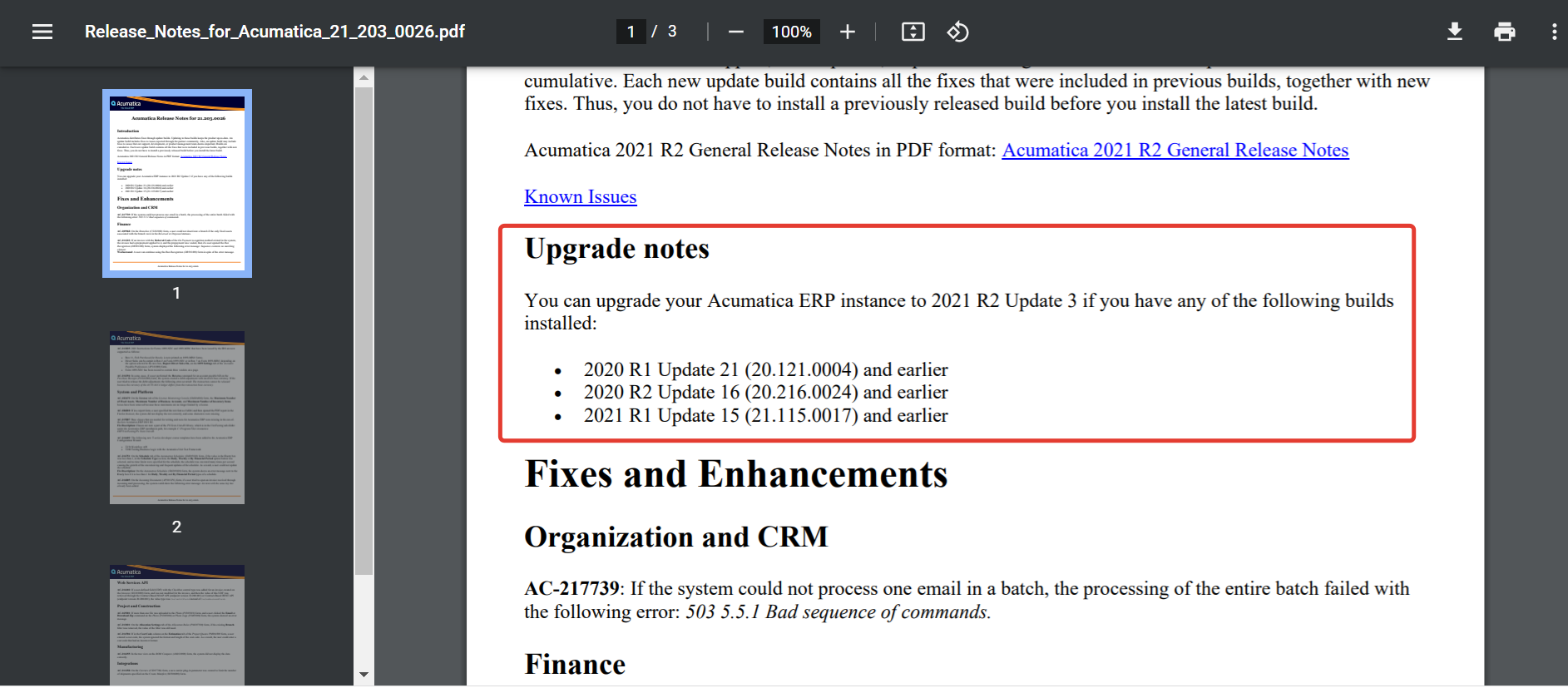Hi All,Our organization is new to Acumatica and have not upgraded even once. We are currently on 2020 R2 version and hoping to upgrade soon. We were not sure how other organizations plan their upgrades, the frequency, measures taken before choosing the version and any tests to ensure everything is alright. We are curious about some of the following scenarios as well:- If companies stick to as specific release, for example going from 2020 R1 to 2021 R1 and skip the 2020 R2 in between. - If companies wait for some number of updates & bugfixes after R1/R2 has been released to upgrade to R1/R2We really appreciate any and all the information we can get from the community to plan our first upgrade. Thanks in advance!
Upgrade Suggestions
Enter your E-mail address. We'll send you an e-mail with instructions to reset your password.












